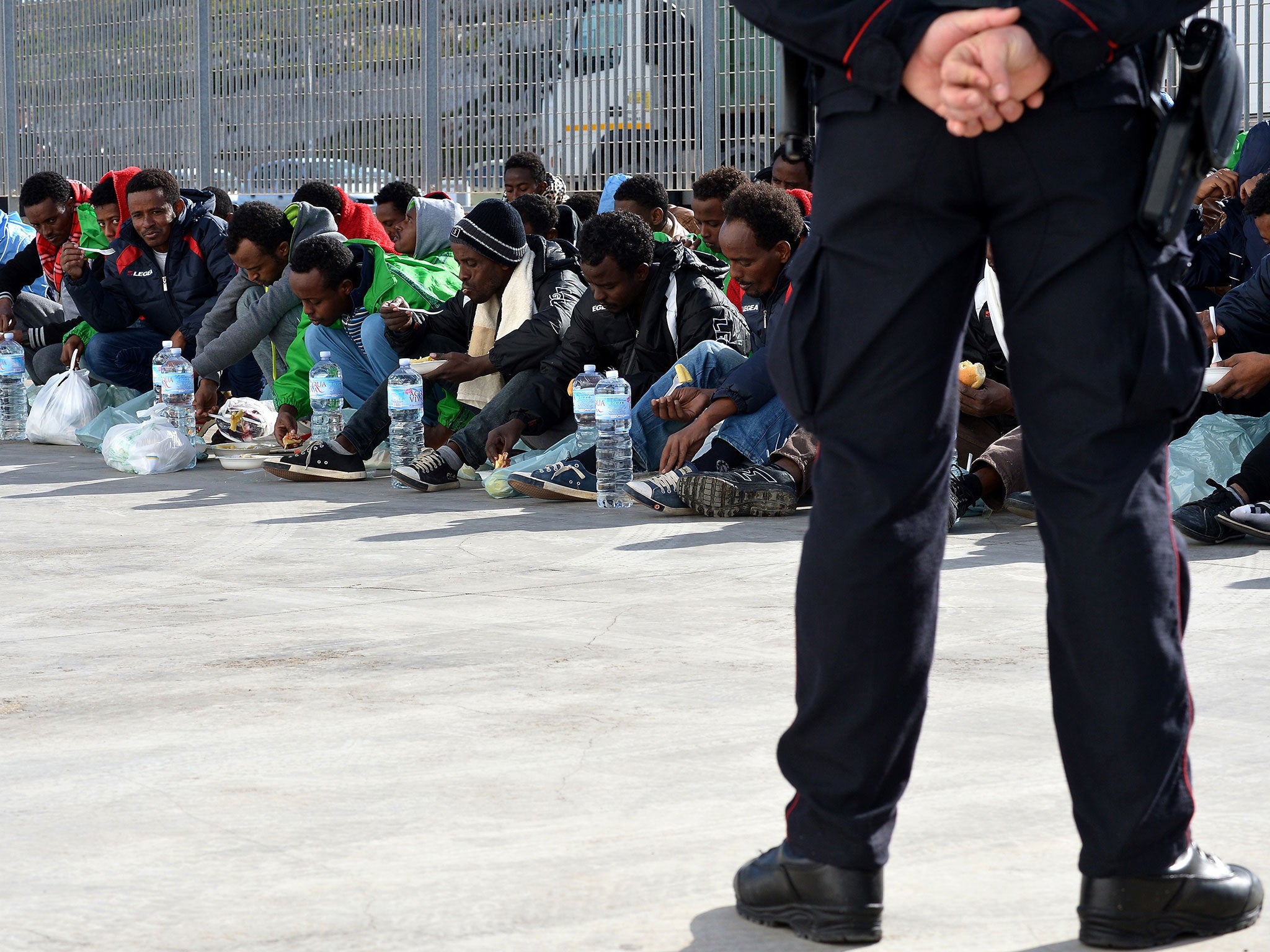The Conservatives' compassion deficit is clear in their statements on migrants in the Mediterranean
Unfortunately, traffickers don’t live round the corner from Downing Street


I have remarked before that Conservative politicians don’t do compassion. When, last October, Europe downgraded the Italian search-and-rescue operation, Mare Nostrum, which had saved the lives of more than 100,000 illegal migrants trying to cross the Mediterranean, Britain said it would send only technical expertise. Send technical expertise? That’s the equivalent of saying, “get lost”.
So what was the response of Philip Hammond, Foreign Secretary, when confronted with the news this weekend that nearly 1,000 migrants had lost their lives in a single perilous journey? Study his statement carefully, for it is the authentic voice of David Cameron’s government.
Mr Hammond said: “We must target the traffickers who are responsible for so many people dying at sea and prevent their innocent victims from being tricked or forced into making these perilous journeys”.
The Prime Minister took the same line: “These are very dark days for Europe. It really is horrific, the scenes that we have all witnessed on our television screens, the loss of life, and we should put the blame squarely at the appalling human traffickers who are the ones managing and promoting and selling this trade in human life.”
Yes, but unfortunately the traffickers don’t live round the corner from Downing Street. They are thousands of miles away, comprising an extensive network that stretches from Libya into neighbouring countries. Given that a number of these are, like Libya, failed states, and given that, as far as I know, we are not proposing to invade any of them, how does the Government propose to go about targeting the traffickers? It can’t of course. The two statements were just, “blah blah”.
Since then, however, people across Europe have made two things plain. There is a strong moral case for resuming an effective search-and-rescue operation; and any hesitation in taking resolute action to prevent the loss of life would add to doubts about the EU being a force for good. It is in these circumstances that heads of European governments, including Mr. Cameron, will meet today to consider the migrant crisis. They will be under pressure to go further, perhaps much further, than the Prime Minister would like.
Before looking at what the EU might do, it is worth analysing people-trafficking as a business. Take the demand side first. The refugees are fleeing such evil prospects as barbaric civil war in Syria and one of the world’s most repressive regimes in Eritrea. They are looking for safety, a livelihood and a meaningful life, which are not obtainable where they were born and raised. They are at the last extremes of desperation.
These refugees cannot be unaware of the risks they run in attempting the crossing of the Mediterranean. I don’t suppose they work out the odds of surviving, but the statistics are that last year, 219,000 people embarked on the crossing and of these, some 3,500 were lost at sea. Grim calculation might show it is worth running the risk of drowning. Indeed we can conclude that demand for passages to Europe will remain strong.
Supply, too, will continue plentiful. For people-smuggling is a profitable business in countries where there is little work. Jason Peck, president of Libya Analysis, explains it like this. “There is no sovereign state in Libya, and that means that sub-state actors can do whatever they like... The conflict is driving the people-smuggling business ... It is not dissimilar to the Taliban in Afghanistan and the opium trade. As soon as they ran short of funds, they began to increase heroin production.” In short, refugees and smugglers alike are behaving rationally.
That said, what should the member states of the EU do? The obvious first step is that the search-and-rescue operation in the Mediterranean must immediately be restarted with sufficient funds to make a difference. There is a model in the multinational naval task force that has successfully dealt with Somali pirates off the Horn of Africa. Some people also point to Australia’s “Operation Sovereign Borders”. Refugees from Afghanistan, Bangladesh, Iran, and Sri Lanka are picked up close to Indonesia and towed back to shore or placed in camps on remote islands rented by the Australian government. None of this is pleasant, but nobody drowns and so far this year not a single asylum-seeker has arrived in Australia by boat.
Then there is the question of which European member countries should deal with the refugees arriving from North Africa. Inevitably, the work has fallen largely on Italy and Greece. But the refugees are not aiming at Italy and Greece per se. Their objective is Europe wherever they can find work, settle down and lead a secure life. If European solidarity means anything, then the boat refugees should be shared out among all member states including Britain.
Don’t be naive, I can hear readers say – you don’t imagine that Mr Cameron could agree to anything like that during an election campaign when a recent poll showed that immigration was one of the voters’ top concerns. And that is not all: both Labour and Ukip are ahead of the Conservatives on immigration and asylum, according to new research by Ipsos Mori.
And yet… the Tories’ compassion deficit I mentioned earlier is also electorally significant. It may be one of the main reasons why the country’s good economic performance has not benefited the Conservatives as much as hoped. It was more than 10 years ago that Theresa May, then chairman of the Conservative Party, said: “You know what people call us? The Nasty Party.” Today, Mr Cameron could soften that image by contributing to an effective plan for dealing with the refugees who risk their lives in the treacherous waters of the Mediterranean to find a better life.
Join our commenting forum
Join thought-provoking conversations, follow other Independent readers and see their replies
Comments
Bookmark popover
Removed from bookmarks